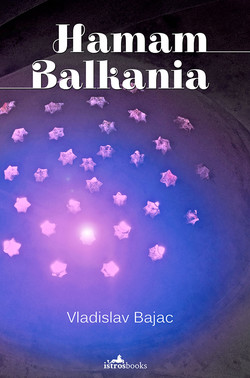Читать книгу Hamam Balkania - Vladislav Bajac - Страница 15
На сайте Литреса книга снята с продажи.
ОглавлениеThe time of wars made in the territory of my former homeland has passed, hopefully, never to return. But not enough time has passed to wash away the consequences. One of them, naive only at first glance, consists of a new and persistent phenomenon of the vulgar exchange of quality for quantity, for example – turning literature into mathematics. Let me explain. Since the transition period of society among the uneducated is also taken as the attempt to express everything in numbers, then as a by-product of ‘the establishment of primary capital’ as it is called by those who rob the people and the government, it shows up as the need to give everything a rank. Of course, ranking is done – with numbers. For the money addicts, the only measures of value are (and always were) numbers. So, top-lists of everything existing have been made. Whatever subject you chose, you could express it in terms of the comparison of its ranking to whatever else you might have chosen.
Even in publishing and literature, numbers of all kinds began to show up: even numbers that expressed the numbers of copies of a printed book and the number of editions for a particular title. Such totals have always been around but, while they are quite important for publishing, they were never decisive, unchallengeable or divine. They were simply there, as a normal part of a whole make-up of various elements, including numbers as well, that constitutes a book and its life.
However, these other numbers that appeared after the fact in the transition, were excessive: for example, the number that marks the place a book took on the top-list of the most popular, most sold, most read, most modern and so forth... On the surface, winning a place through the democratic method. But, this was an illusion. The feeling is irresistible: the transition is being constructed through the use of numbers, by the theft of places.
And the measurements went on and on: how many weeks a book was on the top-list, how many editions as a hardcover, as a paperback, as re-bound, in gold-leaf covers, absurd covers, ending in covering the eyes of the reader. And then, which place it held the week before, for how many weeks, how many votes it received, and if the voting was done electronically – how many ‘hits’ there had been on the voting website. Then the comparisons: all of the data about a book translated from a foreign language compared with the numbers in other countries. Then, the whole thing one more time.
There are also hidden numbers that never reach the public: agreements, binding contracts, the deadline for a writer to hand in her or his manuscript, how many pages she or he can or must write (not more, not less), percentages of possible profits in all possible situations for every party in the contract, and that means more than just the writer and publisher. Even what will happen in unforeseen circumstances is foreseen.
Non-fulfilment of the binding elements of such contracts can also be expressed in numbers: from punitive points to percentage losses. This kind of mathematics is even stronger than death. Seventy years after the author’s death, the calculation remains the same: everything continues to be calculated, added, subtracted, multiplied and divided. It is fortunate that books outlive their authors, but the calculations never give up: they follow the author into the other world and do not allow him to rescind his rights. That post-mortem portion of time is called happy mathematics.
The arguments have still not come to a head – for and against this marriage and all like it, between literature and mathematics. The reason is simple, though it is not visible. Namely, in the transition, intellectuals lost their social and also cultural significance, which caught them off guard, then confused them, degraded them and pretty well marginalised them. To all of that change of status of their former significance was also added a new and cruel poverty. In such a pre-depressive state, some of the people in the world of literature and publishing became morally and materially corruptible. Popularly, they were called ‘mathematicians’.
Yet, perhaps all of that would not have been so tragic had it not also caused a change in certain features and parts of their character. In combi -nation with the question of nation, ethnic belonging, language issues, newfound independence and so on, the intellectual ultimately arrived at the problem of identity. And when it arrived at that point, the destruction and construction, construction and destruction started. Of identity. And of everything else.
